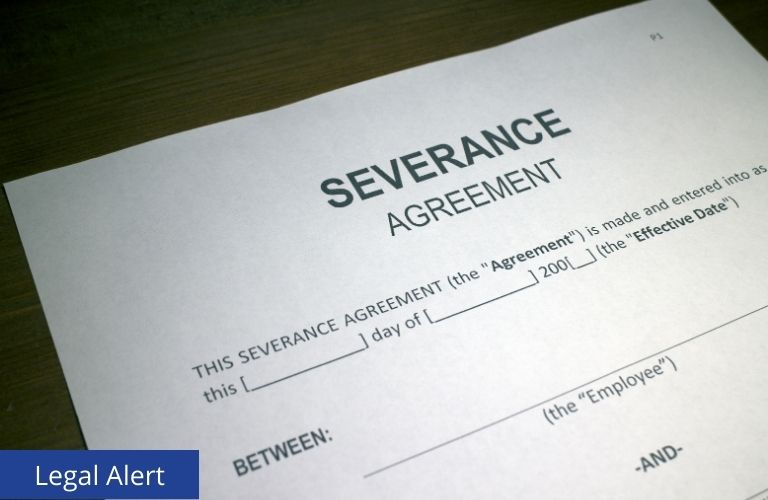
The National Labor Relations Board (“NLRB”) ruled on February 21, 2023 that McLaren Macomb, a company that operates a Michigan hospital, violated the National Labor Relations Act (the “Act”) when it presented a “Severance Agreement, Waiver and Release” to 11 furloughed bargaining unit employees. The hospital offered employees severance agreements that contained standard provisions for confidentiality and non-disparagement, as well as significant monetary and injunctive penalties in the event of a breach. The confidentiality provision was interpreted as prohibiting disclosure of the severance agreement and its terms to any third party, including co-workers and union officials. The NLRB did not consider or address whether a disclaimer such as “these provisions do not prevent you from enforcing your Section 7 rights” could have made the provisions acceptable under the Act.
The hospital believed that the severance agreements were justified based on the Trump-era NLRB standard that allowed employers to include such provisions, as long as they did not discriminate against workers involved in protected activity. However, the NLRB disagreed with this standard and overruled it. The NLRB concluded that tying the receipt of severance benefits on acceptance of a non-disparagement or a broad confidentiality provision may have a “chilling tendency” on the employees’ exercise of their Section 7 rights. The NLRB also ruled that it did not matter whether an employee accepted the agreement because “[w]here an agreement unlawfully conditions receipt of severance benefits on the forfeiture of statutory rights, the mere proffer of the agreement itself violates the Act…”
The NLRB also held that the hospital violated the Act when it failed to bargain with the union regarding the furlough and it communicated directly with the 11 employees to enter into the severance agreement.
What does this decision mean for employers?
The NLRA applies to nearly all private sector employers regardless of whether they have unionized or non-unionized workforces. However, the NLRA does not apply to certain employees who are excluded from the NLRA, such as supervisors. If an employer has provided severance agreements to covered employees, the Act bars employees and unions from filing unfair labor practice charges that occurred beyond the past six months. An employer may use “non-defamation” instead of “non-disparagement,” but the former provides narrower protection and requires a higher burden of proof for enforcement. Employers should review their existing severance agreements that contain similar provisions and work with their labor and employment counsel to identify the best way to comply with the NLRB’s decision so as to avoid an unfair labor practice charge being filed with the NLRB.
We will continue to monitor the NLRB and provide you with updates. If you have any questions regarding the issues raised in the client alert, please contact your Labor and Employment counsel at Smith, Gambrell & Russell, LLP.

